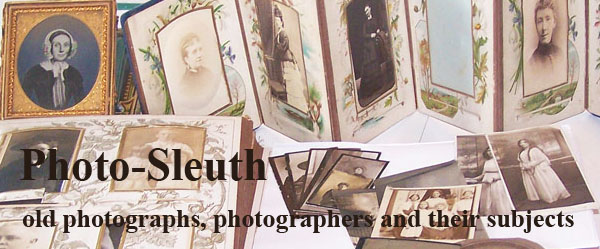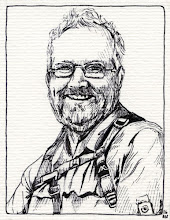
It shows a Captain Bertie Oswald Corbett in uniform, presumably during the Great War, and the collar dogs are again of the flaming grenade type. I would be grateful if the badge experts could please tell me which regiment this is from? An enlargement of the collar dog is included below:

Just to make it clear, this image is of a portrait from my own collection, and has nothing to do with Stew's postcard photographs shown in the previous two postings.
Harry Needham has very kindly provided the following very thorough and informative analysis:
The photo is of a captain of the Royal Artillery (though it could also be any British Commonwealth artillery), as the flames of the very distinctively shaped collar dogs appear to be seven in number, without the two additional shorter flames in the centre that mark the Royal Engineers.
He is wearing his pips on the shoulder which means post 1914. (At the outbreak of hostilities, officers wore their rank insignia very prominently displayed on slash cuffs. This, and the Sam Browne belt, made them HIGHLY conspicuous targets - a dangerous thing to do. They moved their rank insignia to the shoulder straps and started wearing the field equipment of the men, to make them less visible, the Sam Browne being reserved for formal occasions such as having one's picture taken, as in this case!) Following the war, the rank insignia was changed to brass and the Sam Browne again became an everyday item of dress.
Note that he is not wearing a whistle in a little leather pouch on the cross-strap of the Sam Browne belt, which suggests he is not horse artillery. (But this is not an infallible means of identification.)
Judging by the style of the photo, the hair cut, and the cloth pips, I would say that this officer was of the Great War period. The texture of the tie and the collar style are also, I think, in accord with this period.
Notice that he is wearing no ribbons. The "general issue" medals, such as the Victory Medal and the British War Medal, were only awarded at the end of the war. The only ribbons worn during the war represented orders and awards for gallantry, the Military Cross being the most common for officers.
In comparing the collar dogs, remember that, during the Great War, R.A. officers wore bronzed flaming grenades, with a scroll underneath. The grenades worn by ORs were made of brass and did NOT include the scroll, which was added to their collar dogs much later.








No comments:
Post a Comment